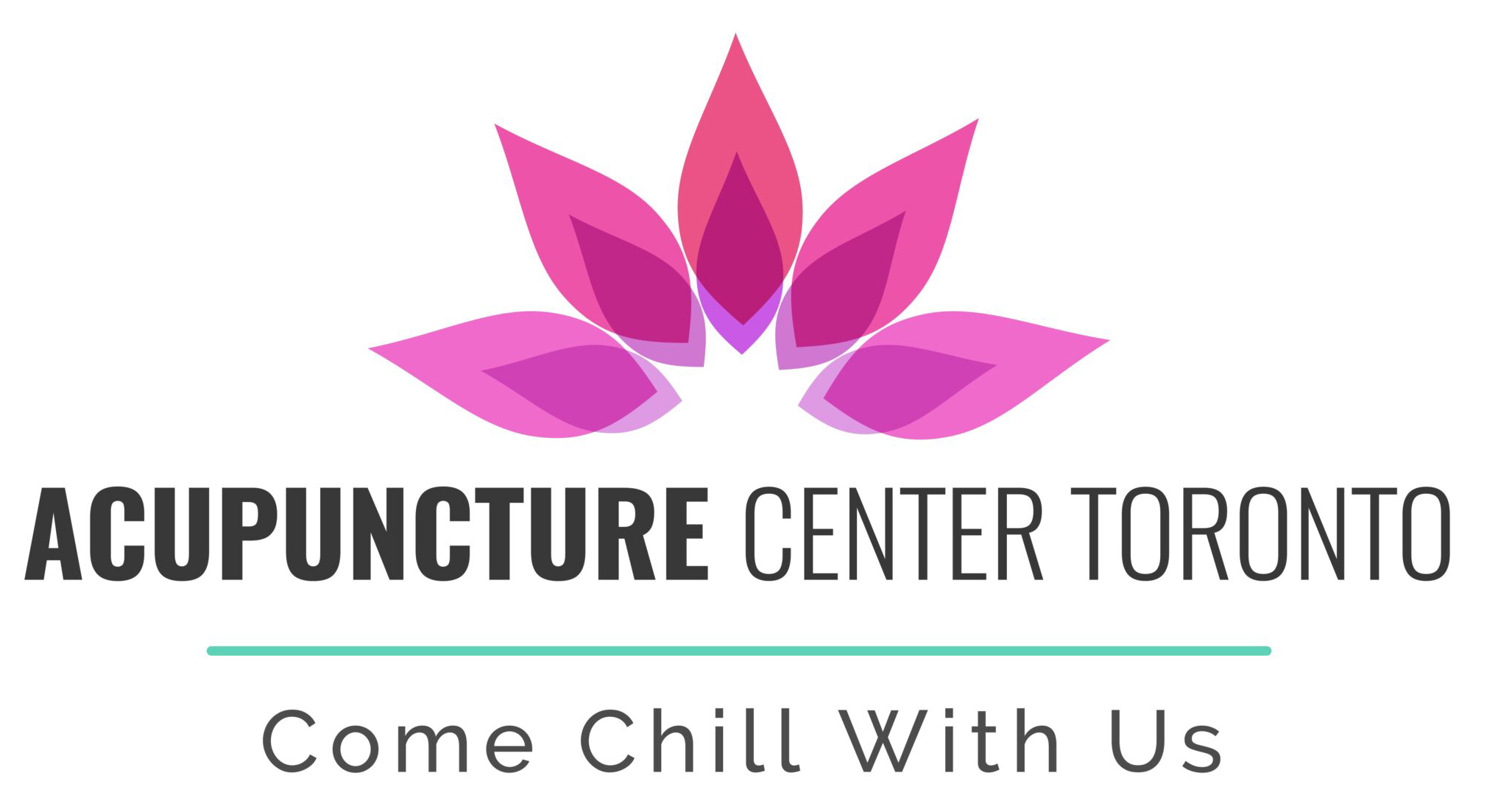Irritable Bowel Syndrome (IBS) is a common condition we successfully help patients manage time and time-again in our busy downtown Toronto Acupuncture practice. Let us explain how we successfully manage symptoms of IBS through Traditional Chinese Medicine. The most common symptoms of IBS include abdominal pain, constipation, and diarrhea. As Acupuncturists, we believe that IBS arises from a blend of factors including blood circulation to digestive organs, mental health factors, and stress. All of these factors can weaken the functioning of the large intestine. Due to the highly individualized nature of IBS causation, pinpointing the exact underlying cause in Chinese Medicine through precise diagnosis is of paramount importance. Let’s deep dive into how an Acupuncturist would explain Irritable Bowel Syndrome and how we can help!
Irritable Bowel Syndrome (IBS) often poses a complex challenge when it comes to addressing its root causes. Our patients often tell us that their MD can’t provide them with underlying reasons why they are experiencing IBS. Yet, acupuncture emerges as a promising avenue for explaining and alleviating its troubling symptoms and recurrent attacks. At Acupuncture Center Toronto, we seek to soothe the Liver, rejuvenate damaged intestines and restore normal stomach function by combining acupuncture and other modalities such as Moxibustion, Fire cupping, Gua Sha. Let’s examine how Acupuncture and our other therapies help to heal digestive organs and decrease stress.
1. Japanese Moxibustion for IBS: Japanese Moxibustion is incredible for promoting circulation and easing an upset tummy. This gentle heat therapy is effective at enhancing blood flow within the stomach while eliminating waste products.
Moxibustion healing heat is incredible when performed directly over spasming organs such as the small and large intestines. We love incorporating Japanese Moxibustion into our digestion treatments at no extra cost.
2. Acupuncture improves Digestive Functioning: Supporting digestion, safeguarding the liver, and acting as a muscle relaxant Acupuncture does it all! Acupuncture will help to repair digestive organ tissue. It has been proven to decrease inflammation which is important for calming painful intestine and rectal spasms. Many Acupuncture points are amazing for reducing bloating, gas and alternating loose stool/constipation characterized by IBS. There are loads of points for loose stool, constipation and abdominal pain both on the tummy and legs.
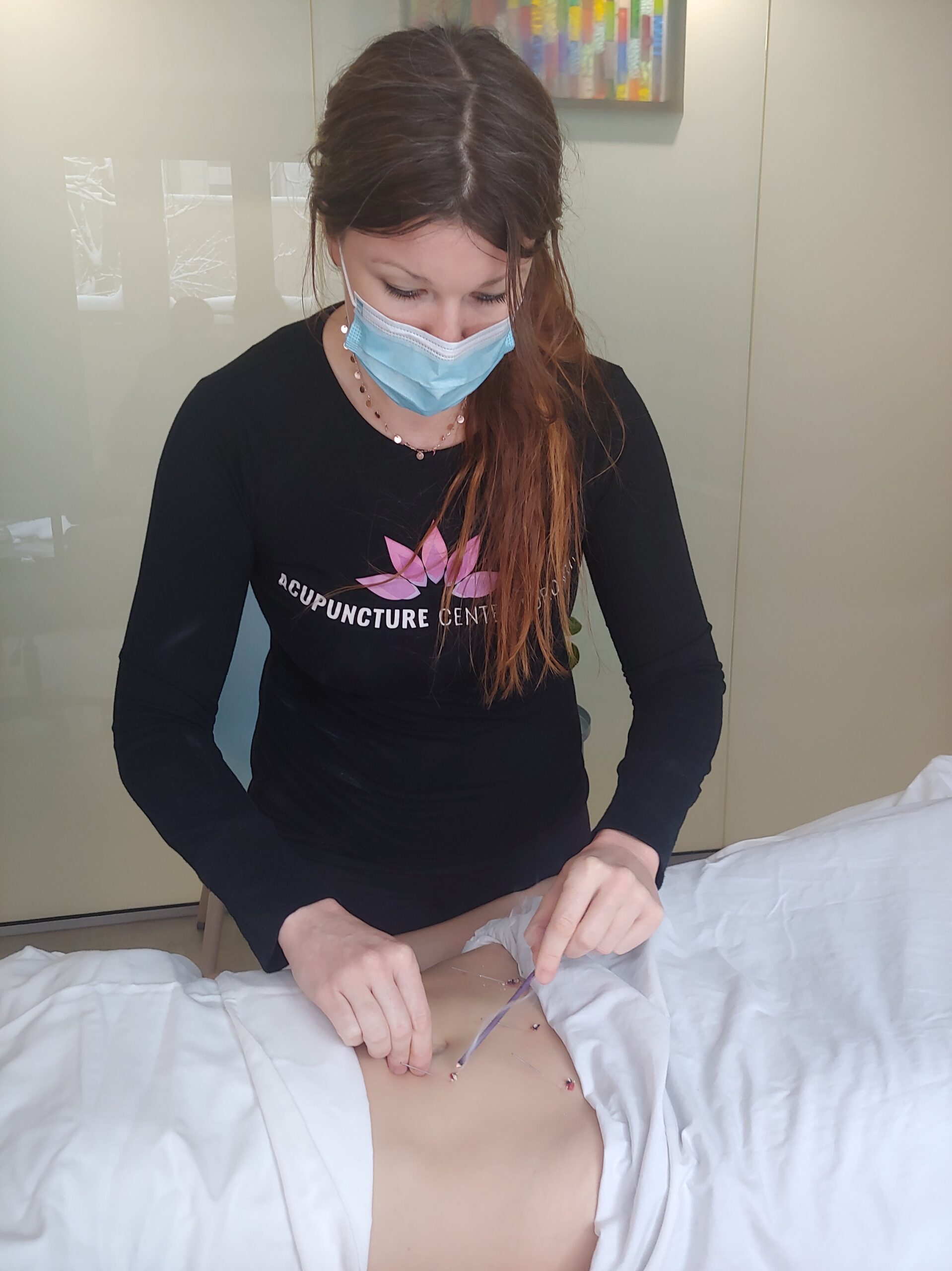
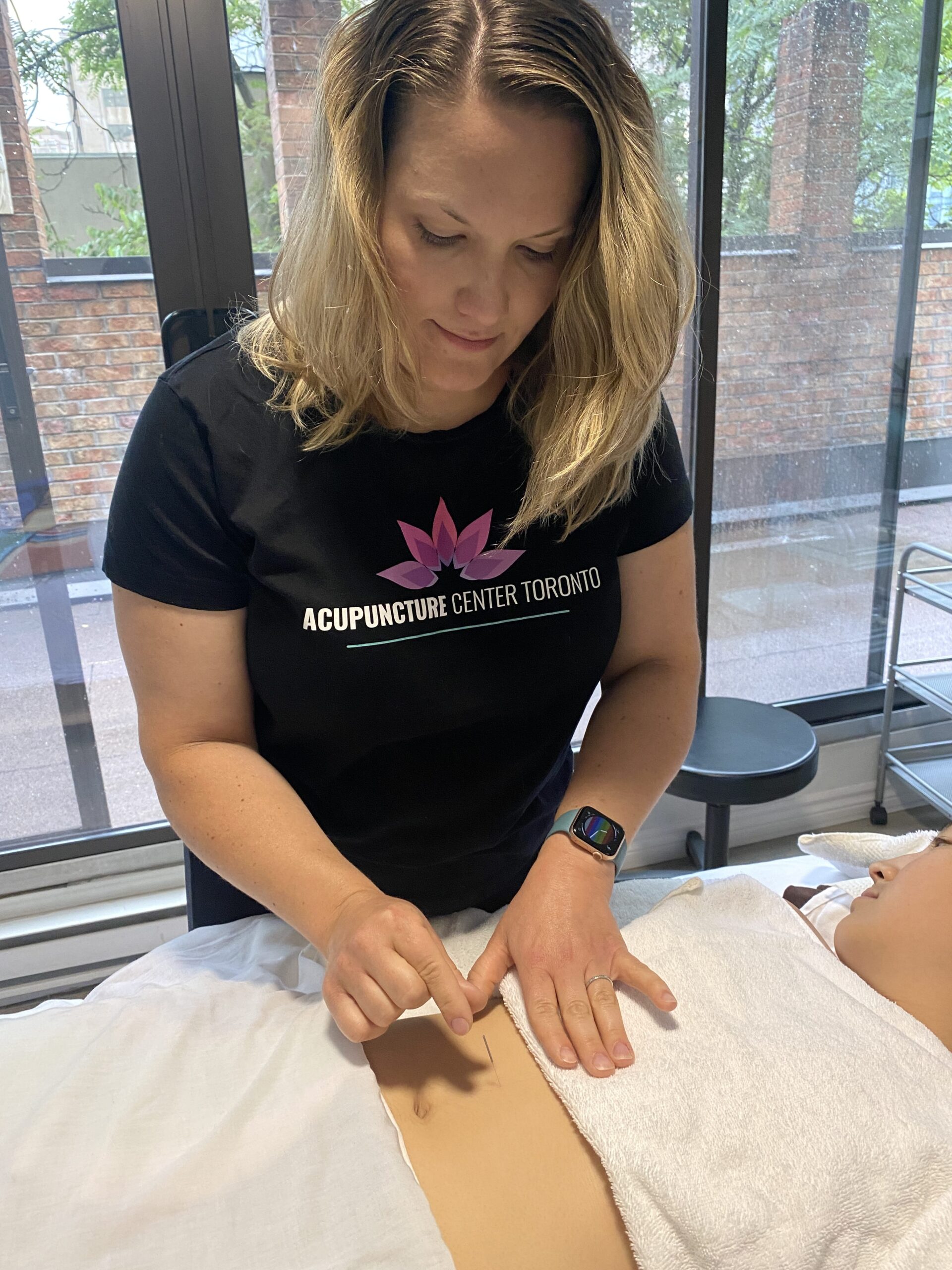
3. Acupuncture boosts the immune system: Acupuncture for the win at fortifying immunity and activating gastrointestinal functions.
4. Acupuncture and Fire cupping for managing stress associated with IBS: Recognizing that IBS can persist under certain stressful conditions, our treatments aim to provide relief when symptoms occur. Let us calm the nervous system. We’ll gently insert needles to relax the mind and reduce the frequency of IBS attacks. You’ll let us know which points you love by how fast your mind unwinds once they’re needled.
Let us help you take control of your digestive wellbeing.
How many appointments will I need to cure IBS with Acupuncture?
We should note that Acupuncture may not completely cure IBS, but we can assure you that it usually helps A LOT! We ask patients to commit to 3-5 clinical acupuncture treatments. We find that after 3 appointments with our skilled Registered Acupuncturists, our patients experience a reduction in their digestive discomfort. Their bowel movements will be less loose and more regular. You will likely notice you’re less stressed and bloated. Overall, our patients have enjoyed our approach to treating digestive conditions. We’re always honest with promises; we won’t be able to cure IBS in 1 appointment. Give it a bit of time and patience. Hang in there for at least 3 treatments, see some improvement and then we’ll reassess our treatment frequency plan based on your recovery rate. The goal is that we can eventually start spacing out appointments so you can come less often. Some patients visit us regularly to keep symptoms at bay, while others need support during an IBS flare up.
We will directly treat the underlying organs involved in IBS symptoms
According to Chinese Medicine, IBS is closely linked to various organs that need a bit of a boost. We view the Liver, Spleen, Stomach, and Large Intestine as central players in this syndrome. In chronic cases, the Kidneys can also become entangled in the mix.
Why am I getting IBS symptoms?
In TCM, IBS can be attributed to various pathologies, and Chinese Medicine offers a range of treatments based on syndrome differentiations according to which organs are involved. If you have IBS, you’ll probably be able to spot which organs we can help you strengthen with Acupuncture.
Do you have any of the following Irritable Bowel Symptoms? |
|---|
| NOTE ON CHINESE MEDICINE TERMINOLOGY- It’s important to note that when we discuss various organs below, we’re referring to organ energy in Chinese Medicine terms. Organs have different functions and there’s nothing physically wrong with your spleen, heart or kidneys so don’t panic! |
| Liver Overacting on Spleen: Stress can rattle the liver energy, leading to intestinal spasms. This type of IBS can result from irregular food intake and disharmony between cold and warm elements, damaging the Spleen. The focus here is on soothing the Liver and strengthening the Spleen. Your IBS is almost always stress triggered. |
| Cold-Damp creating Spleen and Kidney weakness: Consuming cold foods or enduring excessive work can disrupt proper intestinal function, causing poor bowel performance. Treatment involves drying dampness and fortifying the Spleen and Kidney. |
| Lack of Heart and Spleen Blood: Stress-induced heart atrophy can compromise blood supply to the intestines, leading to intestinal atrophy. The aim for us is to boost healthy blood production by strengthening Spleen and Heart. |
Do you have any of the following Irritable Bowel Symptoms?
NOTE ON CHINESE MEDICINE TERMINOLOGY- It’s important to note that when we discuss various organs below, we’re referring to organ energy in Chinese Medicine terms. Organs have different functions and there’s nothing physically wrong with your spleen, heart or kidneys so don’t panic!
Liver Overacting on Spleen: Stress can rattle the liver energy, leading to intestinal spasms.
This type of IBS can result from irregular food intake and disharmony between cold and warm elements, damaging the Spleen. The focus here is on soothing the Liver and strengthening the Spleen. Your IBS is almost always stress triggered.
Cold-Damp creating Spleen and Kidney weakness: Consuming cold foods or enduring excessive work can disrupt proper intestinal function, causing poor bowel performance. Treatment involves drying dampness and fortifying the Spleen and Kidney.
Lack of Heart and Spleen Blood: Stress-induced heart atrophy can compromise blood supply to the intestines, leading to intestinal atrophy. The aim for us is to boost healthy blood production by strengthening Spleen and Heart.
Acupuncture is beautiful relief for digestive organ inflammation not to mention an effective nervous system “chill-out” for the associated stress that goes hand-in-hand with IBS.
Chinese medicine tips for Irritable Bowel Syndrome (IBS)
Irritable Bowel Syndrome (IBS) is affected by lifestyle and mental health. To effectively manage IBS, the following home-care strategies can prove highly beneficial:
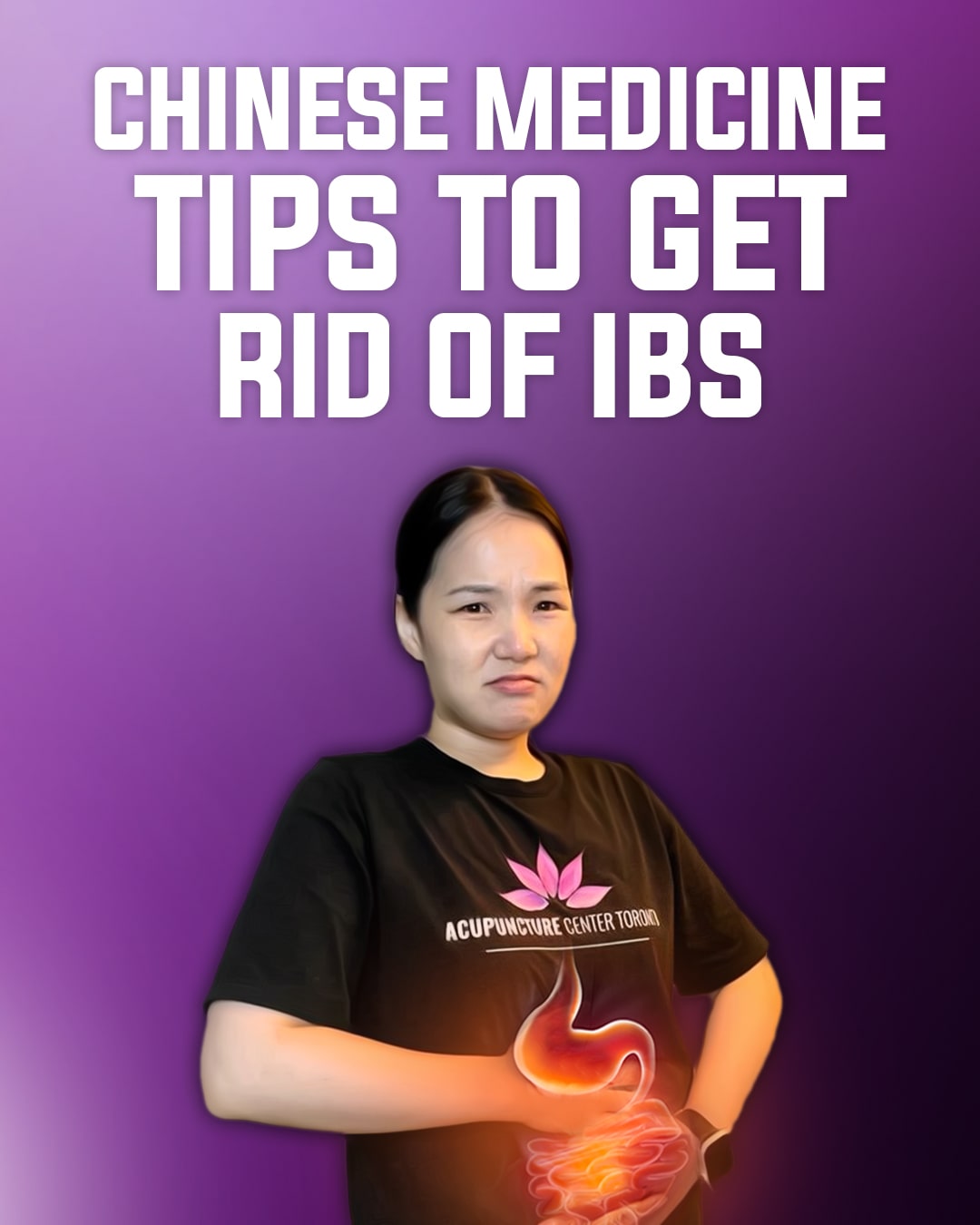
1. Stress management
Stress is often a trigger for IBS symptoms. While avoiding stress completely isn’t realistic, it’s crucial to find ways to reduce it. Practices like meditation, which focus on relaxation and deep breathing, can significantly reduce stress levels. Listening to calming music, such as classical tunes, can also be helpful. Acupuncture is amazing for stress management. Our clinic enhances the experience with water features, relaxation music and heated massage tables to lull you into a deep chill state.
2. Dietary modification
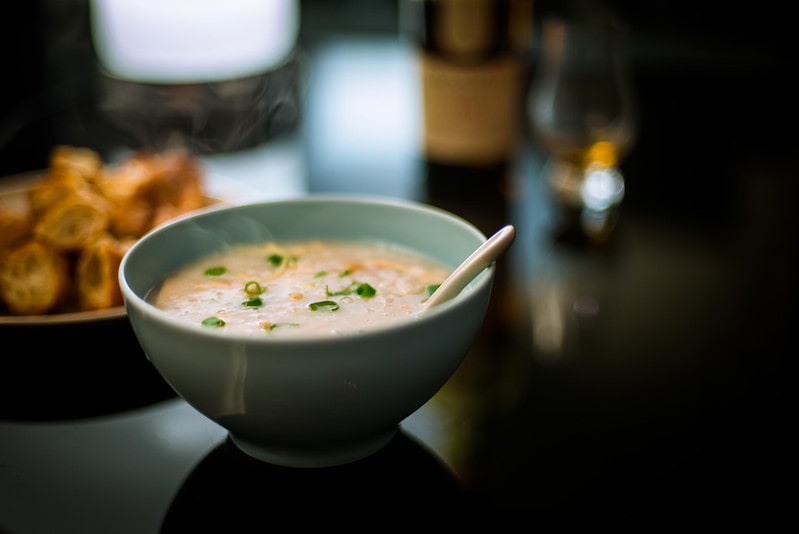
Identifying trigger foods is essential. Maintaining a food diary can help pinpoint items that exacerbate symptoms. Generally, it’s advisable to avoid cold, spicy, salty, and greasy foods. Individuals with lactose intolerance should steer clear of dairy products. Incorporating dietary fiber from fruits and vegetables can assist with normalizing stool. Consider probiotics, either in yogurt or supplement form, to promote gut health.
Check out our video of our favorite Dietary tips for combatting IBS
3. Lifestyle changes
Regular exercise, about 30 minutes to an hour daily, is beneficial. Keeping a consistent routine, including regular bathroom breaks, can help alleviate symptoms. Avoid alcohol, cigarettes, and overwork, as they can strain your health. Staying hydrated with warm water and taking sitz baths regularly can also offer relief.
Additional tips for IBS:
- Develop personalized stress-coping mechanisms.
- Prioritize regular exercise in your routine.
- Focus on maintaining comfort in daily life.
- Understand that IBS is not life-threatening.
- Steer clear of foods that trigger your symptoms.
Remember: Treatment effectiveness varies from person to person, so work closely with our registered acupuncturists to create a tailored plan to manage your IBS effectively.
What is Irritable Bowel Syndrome (IBS)?
Irritable bowel syndrome, commonly known as IBS, is a persistent gastrointestinal condition that primarily targets the large intestine, triggering a range of discomforting symptoms. These symptoms encompass abdominal pain, bloating, excessive gas, and alterations in bowel patterns. These shifts can manifest as constipation, diarrhea, or even a perplexing combination of both. Often, IBS is provoked by heightened intestinal activity triggered by mental stress. It’s important to note that IBS isn’t a specific disease but rather arises from a functional impairment of the intestines. Intriguingly, it frequently coexists with fibromyalgia, compounding the complexity of the condition.
What are the symptoms of IBS?
Typical manifestations of IBS encompass abdominal pain and fluctuations in bowel regularity. Curiously, even intense abdominal pain tends to alleviate after a bowel movement. Additional symptoms may include the presence of mucus in stools, abdominal distension, frequent burping and flatulence, overall fatigue, headaches, insomnia, and tense shoulders. In some cases, chronic fatigue and depression can accompany the condition. Furthermore, IBS might present concurrently with functional indigestion or reflux esophagitis. It’s important to note that IBS can be categorized based on predominant symptoms, classifying it as constipation-predominant, diarrhea-predominant, or alternating between the two.

Unraveling the triggers
While the precise cause of IBS remains a mystery, it’s akin to a syndrome, implying a multifaceted origin. Potential culprits encompass dietary factors, stress, and abnormal gut motility. Certain foods, such as greasy or spicy dishes, could act as triggers, as well as psychological factors like stress and somatization disorder. Allergies to specific food components can also contribute. Surprisingly, mood swings, lifestyle changes, or even abrupt weather shifts have been known to spark IBS symptoms. In essence, the triggers and symptoms can widely vary from person to person.
Acupuncture works in conjunction with western medicine
Within the realm of Western medicine, an array of treatments are available to address IBS, tailored to the severity of symptoms and the specific subtype of IBS in question. Medical interventions often involve the use of drugs like antispasmodics, which reduce intestinal sensitivity, and bulk-forming laxatives that prove effective for constipation relief. In certain cases, tranquilizers may be employed as auxiliary treatments to alleviate associated symptoms.
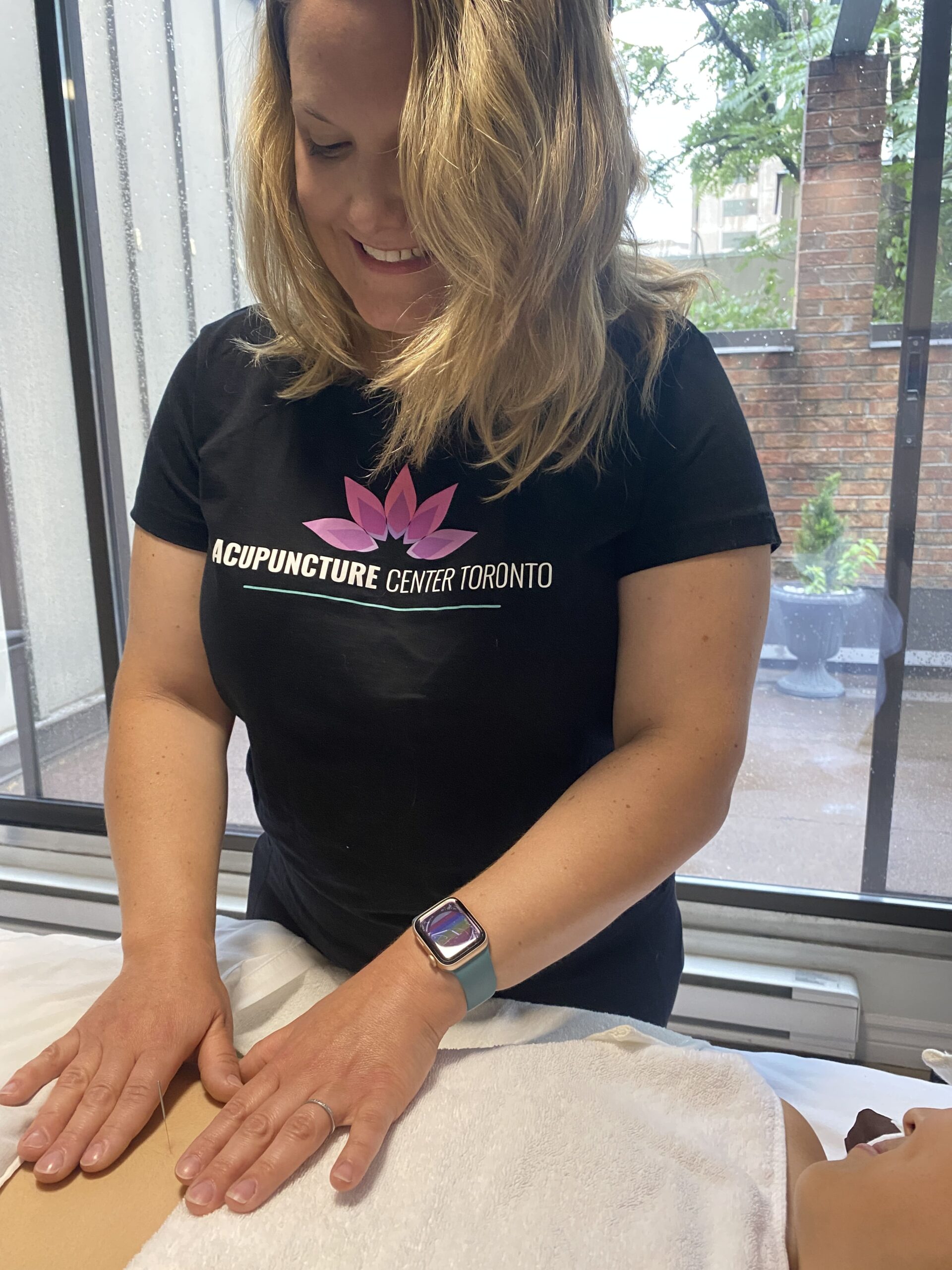
We’ve helped thousands of patients ease back into their daily routines without the worrisome and uncomfortable symptoms of IBS hindering them. If you’re in Toronto, let us help you treat IBS naturally with Acupuncture.
